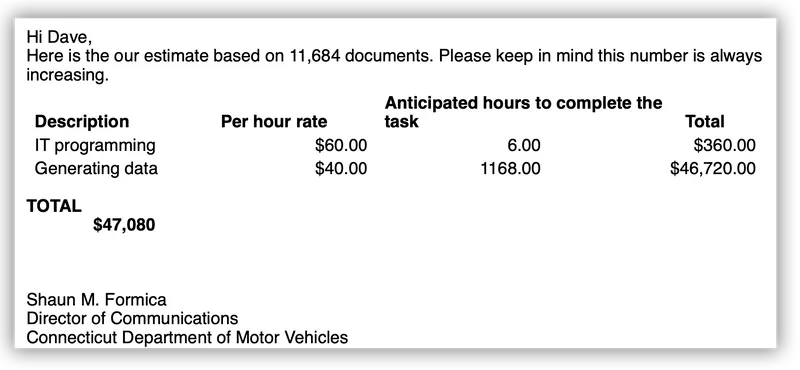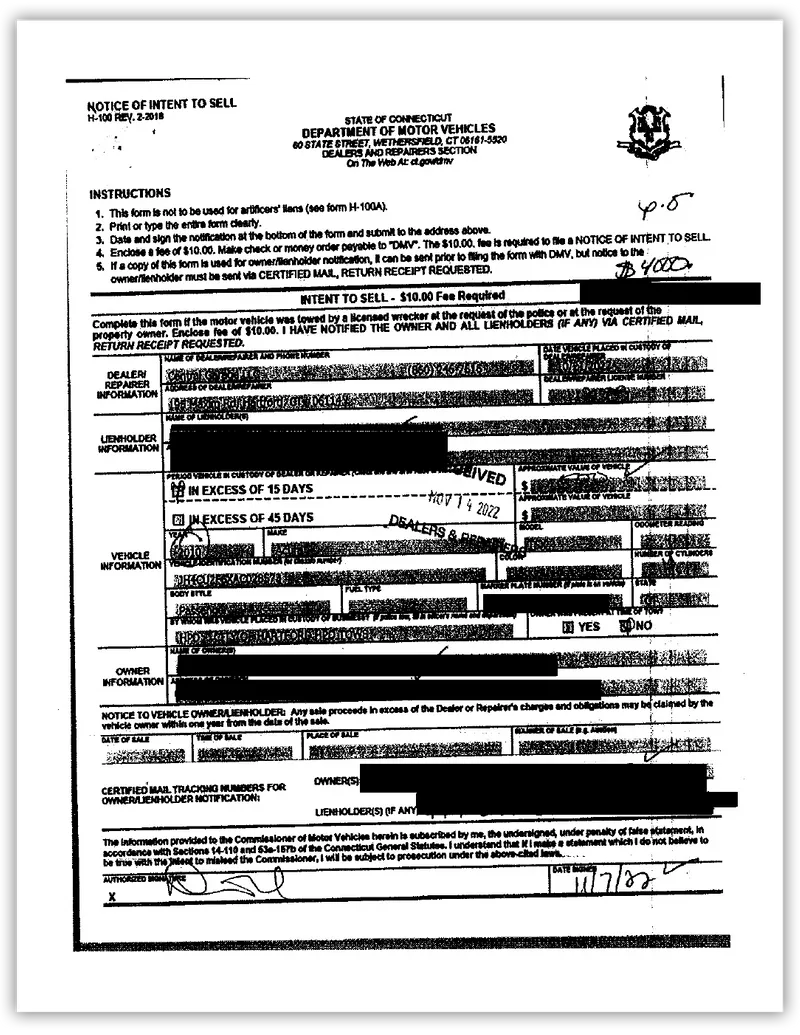This article was produced for ProPublica’s Local Reporting Network in partnership with The Connecticut Mirror and originally published in our Dispatches newsletter; sign up to receive notes from our journalists.
In the summer of 2022, a source called me with a tip about towing. “The details of how this works,” he said, “your head’s gonna spin.”
It turns out Connecticut has a more than 100-year-old law that allows tow truck companies to sell someone’s car 15 days after they haul it away, if they can convince the Department of Motor Vehicles that the vehicle is worth $1,500 or less.
The time frame, we learned by calling every state, is one of the shortest in the country.
So I set out to answer what I thought was a simple question: How many cars have towing companies sold?
I submitted a request to the DMV under the Connecticut Freedom of Information Act.
Two-and-a-half years later, it seems the DMV doesn’t even know the answer — and we’re still waiting for thousands of records.
In the fall of 2022, the DMV told me it would cost us $47,000 to get the documents. Not only did it sound like the sticker price for a new car, but I realized we were in for a long fight. (The DMV now says the estimate was an error.)
 We had sought one-page forms called H-100s that tow truck companies must submit to the DMV to get permission to sell someone’s car. Those forms could help us find out a lot of information — which companies are trying to sell cars quickly and what the DMV does with those requests.
We had sought one-page forms called H-100s that tow truck companies must submit to the DMV to get permission to sell someone’s car. Those forms could help us find out a lot of information — which companies are trying to sell cars quickly and what the DMV does with those requests.
Getting the documents was key to learning about towing practices in Connecticut and the real impact they have on people’s lives.
After asking the DMV to produce an itemized accounting of the $47,000 bill, we asked our attorney to appeal to the Freedom of Information Commission. Our attorney negotiated a compromise in April 2023. We agreed to pay $1,900 to cover the agency’s costs of redacting thousands of documents our request entailed.
The next month, we got our first group of forms, and it finally felt like we were on our way, until I opened the first batch and saw this:
 In addition to being heavily redacted, many forms were handwritten, and the DMV didn’t seem to have a database or a system for keeping track of them. Agency officials initially told us there were 11,700 documents. Then they told us there were more than 7,000 for 2022 alone. Now they say there are about 4,100 for that year. The DMV hasn’t been able to explain the discrepancies. Officials also said the request has taken time because they have to manually redact thousands of documents.
In addition to being heavily redacted, many forms were handwritten, and the DMV didn’t seem to have a database or a system for keeping track of them. Agency officials initially told us there were 11,700 documents. Then they told us there were more than 7,000 for 2022 alone. Now they say there are about 4,100 for that year. The DMV hasn’t been able to explain the discrepancies. Officials also said the request has taken time because they have to manually redact thousands of documents.




